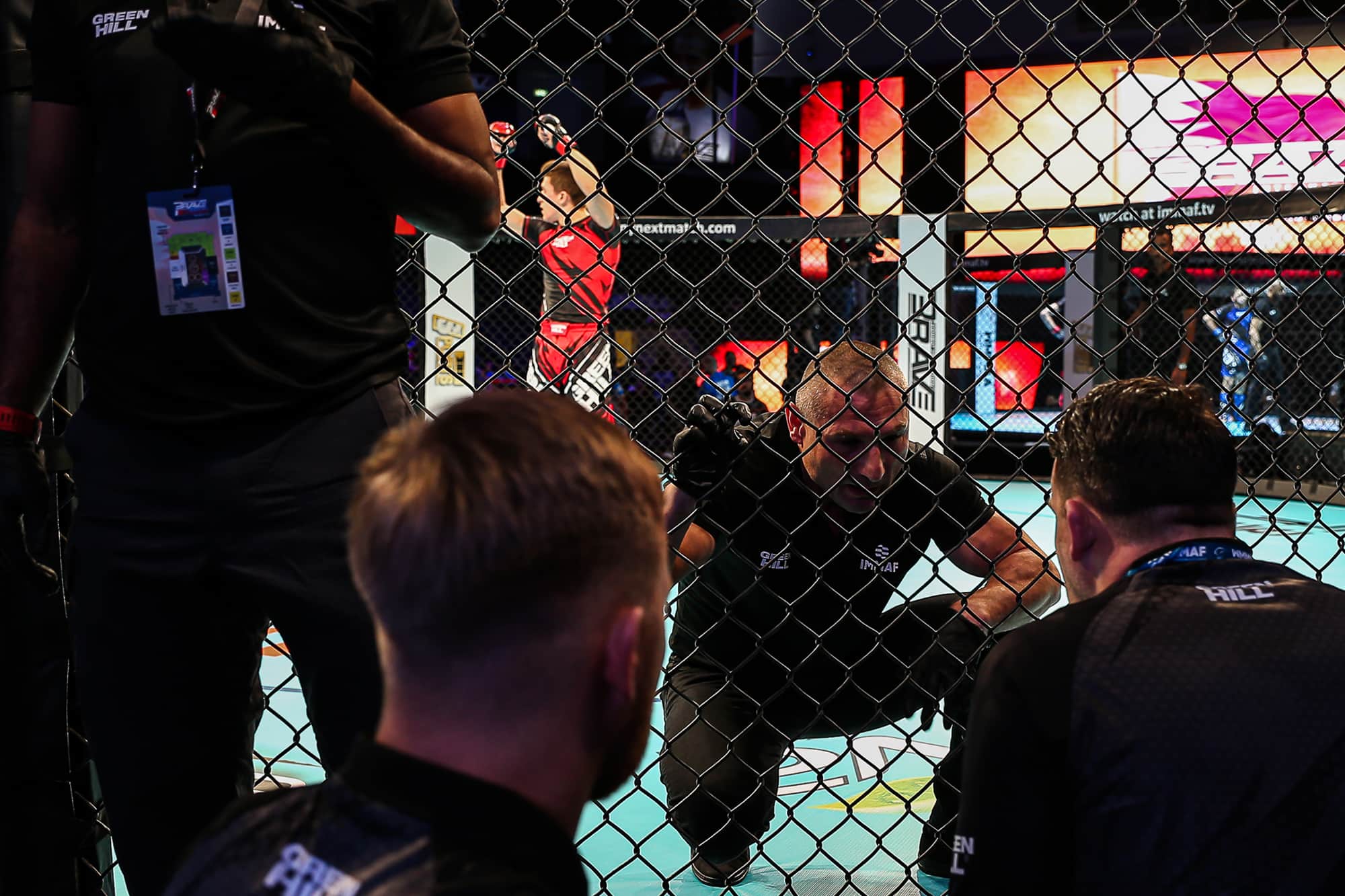By Ross Patterson
Yoni tapped his head: “It’s about this. It’s about protecting this. Culturally, that’s understood across the sport.”
The Director of Athlete Safety for IMMAF is talking about the brain. It’s a fragile organ, and within such a high-contact sport, protecting it must be the highest priority. Human bodies are good at recovering from scrapes, bruises and even breaks. We are designed to take this kind of wear and tear. But the central nervous system is far more fragile.
Fewer concussions are seen in MMA compared to a combat sport like boxing1. In MMA, there are more targets to hit and fewer rounds to do damage to your opponent, but of course, concussions occur. The International Mixed Martial Arts Federation takes impacts to the brain extremely seriously. Every athlete who suffers a loss via KO or TKO due to significant head strikes has a compulsory CT scan. This is far lower than the clinical threshold, but it speaks to how seriously the federation takes the brain health of their athletes. The scans are done privately, paid for by the IMMAF. If an athlete refuses, they are suspended indefinitely.
There have been calls to make brain scans compulsory for all. Every member of the Irish team receives a pre-competition brain scan. This is a leading approach, however, not possible for every team. One of the challenges the IMMAF faces is being an international federation. Even a blood test can look different from country to country.
So, how do you standardise medical checks, and make sure the athletes are ready for competition?
SafeMMA
SafeMMA was set up in 2012 as an independent body to protect the health and safety of athletes across a range of competitions. It works as a centralised system of health records, suspensions and safety standards. It was founded by medical professionals and representatives from the sport of MMA, as well as the promotions Cage Warriors and BAMMA. In 2018 it achieved charity status, which recognised its main activities as philanthropy and social wellbeing rather than profit-making.
The charity works closely with IMMAF. They are there to manage the pre-event medical safety standards, which include an annual health check and pre-competition blood tests.
Their medical support is constantly evolving. Yoni Gottlieb was responsible for a new system where athletes are asked the same questions at registration as during their annual medical check:
“Within the last 60 days, have you taken a hard blow to the head? Have you been suspended from any other sport (not just MMA)?
Team leaders are also asked to corroborate these answers because, however important a role SafeMMA plays, they can’t cover everything. So, a huge responsibility for athlete safety also lies with the coaches. They know their students better than anyone. This system helps to put some of the liability back onto the coaches and teams instead of just on the IMMAF and SafeMMA.
In addition to these systems, Yoni believes these three things are key to keeping athletes safe:
- Responsible matchmaking.
Both athletes must have a similar skill level. This is vital in producing healthy competition and stops anyone from being badly hurt. - Having experienced cage-side medics in case something catastrophic goes wrong.
In 2016, a young Portuguese man, João Carvalho lost his life in an MMA competition. Questions were raised about the competency of the medical team in attendance. Since then, at every IMMAF event, the cage-side medics are tested on their ability at maintaining airways and extracting casualties from the ring using their equipment. This means that if anything does go wrong, the team are already familiar with the procedure. - Competent refereeing.
It is the referee’s job to protect athletes from unnecessary damage. Marc Goddard is the Head Official at IMMAF and is considered to be one of the best MMA referees on the planet.
Marc was a founding member of SafeMMA and still sits on the board. Goddard is dedicated to the wellbeing of competitors and sets a strong example for everyone involved in athlete safety.
Going forward, the IMMAF is focused on making their safety procedures scalable, and that the highest possible medical standards are provided to their athletes.
Yoni on MMA:
“Is it dangerous? Yeah, I think it’s dangerous. But it’s not as dangerous as climbing mountains or sitting on the sofa eating crisps all your life.”

